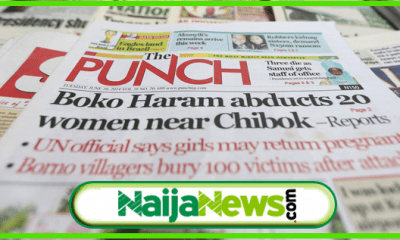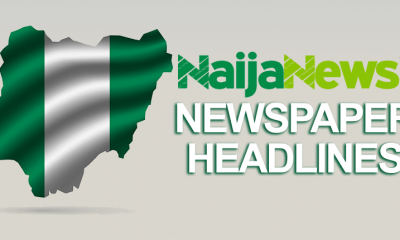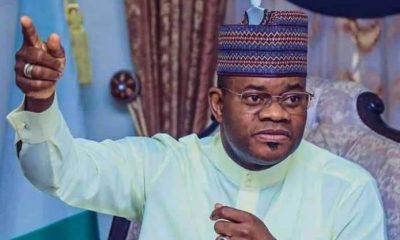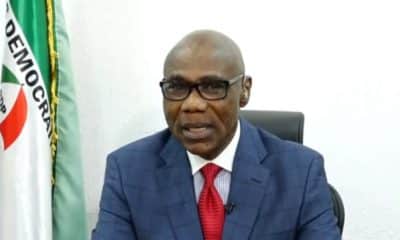Nigeria News
House Of Rep Members Sponsor Bill To Return Nigeria To Parliamentary System Of Government
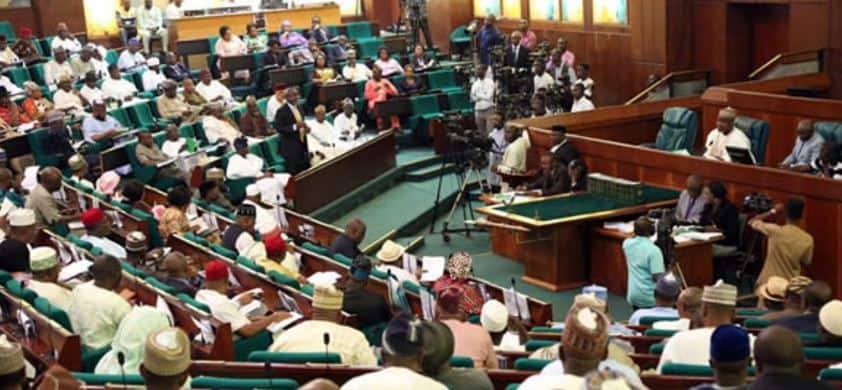
Lawmakers Move To Return Nigeria To Parliamentary System Of Government
71 House of Representative members have sponsored a bill targeted at returning Nigeria to a parliamentary system of government.
The bill, seeking to amend the 1999 constitution, has already scaled through first reading during plenary on Thursday.
The lawmakers, mostly from the opposition Peoples Democratic Party (PDP), are moving to change Nigeria from the current presidential system of government currently in operation.
Addressing newsmen at the National Assembly complex in Abuja on Thursday, spokespersons of the group, Kingsley Chinda (PDP, Rivers) and Nicholas Ossai (PDP, Delta), were of the view that the parliamentary system, suits Nigeria because it is more economic friendly, cost effective and largely efficient in the conduct of government business in comparison with the presidential system of government.
“Seventy-one of us sponsored that bill. Our position in this legislation clearly points to compelling advantages of a parliamentary system of government to economic growth and development, as well as its inherent efficiency in the conduct of government business.”
“Studies have shown empirically that countries run by presidential system consistently produce lower output growth, higher and more volatile inflation and greater income inequality relative to those under parliamentary ones.”
“Little wonder the rich continue to be richer whilst the poor get poorer, and we have become the poverty capital of the world.”
“There are countless empirical records which show that output growth under presidential systems are in zero points (negative) while output growth under parliamentary systems clocks from one point and above (positive).”
“The Great Britain is an example. France is another example. Australia is also an example of countries with high positive output.”
“Even when Nigeria was practising it in 1960, if you see the output and the growth in terms of employment rate that Nigeria witnessed, you will marvel but the military took over and gave us the presidential system of government in 1979, and that system has not increased any economic benefit for our country.”
“In 1983, the military struck again, and came back in 1999 to impose a constitution with presidential system of government that has been complex; a system that the bureaucracies are in two key areas.”
“There is the Presidency. Under the Presidency you will see a lot of agencies within the bureaucratic setting, different from the civil service bureaucracy. You could see that the result of this is a high cost in governance.”
“Due to the excessive powers domiciled in one man under the presidential system, consensus building that is often required for economic decision is always lacking. If it is under a parliamentary system, the prime minister is part of the legislature.”
“The over-centralisation of government decisions that is prevalent in a presidential system obstructs economic development when compared to the parliamentary or hybrid system.”
“The point has also been made that the too powerful nature of the presidential office, often leads to greater fluctuations in the economy with the change of office.”
“This was witnessed in Nigeria in 2015 and currently being experienced as we prepare for the 2019 general elections. Such volatility is evidenced by sharper electoral cycles under presidential systems than that of parliamentary systems.”
“The decentralisation of powers in parliamentary system helps to douse tensions in countries – like Nigeria – where ethnicity, race, religious differences and ideological divisions are prevalent, thereby promoting peace and unity which are ingredients for economic growth and development.”
“Parliamentary systems promote inclusion and collectiveness which is critical to equality of income distribution and opportunities,” the group said.
Other members of the group present at the briefing include Abdulsamad Dasuki (PDP, Sokoto), Boma Goodhead (PDP, Rivers), Timothy Golu (PDP, Plateau), Gabriel Onyenwife (PDP, Anambra), Sergius Ogun (PDP, Edo), and Emeka Ujam (PDP, Enugu).
The new bill is coming just few months before the tenure of the 8th Assembly expires, thus raising concerns over the possibility of getting the bill through the normal legislative process before another election takes place.
Should the bill scale through legislative processes, it will also require the assent of the President before it can become law. and operational.
Naija News recalls that before the military took over power, Nigeria operated the British-styled parliamentary system of government in the First Republic, from 1960.
The 1979 Constitution however, returned the country to the US-styled presidential system of government.



